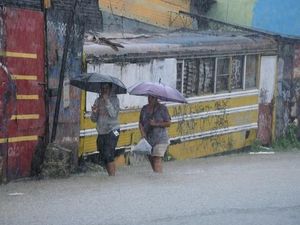The White House has taken aim at actress Selena Gomez following her emotional response to recent immigration crackdowns, with officials sharply criticizing her social media video where she expressed sorrow for deported individuals. The actress posted her now-deleted video on Instagram, where she could be seen crying and lamenting the treatment of families affected by U.S. Immigration and Customs Enforcement (ICE) raids.
Gomez, who has 422 million followers on Instagram, recounted her feelings, saying, "All my people are getting attacked, the children. I don’t understand. I’m so sorry. I wish I could do something, but I can’t. I don’t know what to do. I’ll try everything, I promise." Her heartfelt message struck chords among many but drew immediate ire from conservative circles, particularly within the Trump administration.
On Friday, the official White House account posted criticisms alongside clips of grieving mothers whose daughters were allegedly murdered by undocumented immigrants. Press Secretary Karoline Leavitt amplified this criticism by sharing the video featuring the mothers, tagging Gomez directly. The mothers articulated their frustrations about Gomez's focus on the undocumented immigrants being deported, emphasizing their sorrow over the victims of crimes committed by these individuals.
Tammy Nobles, mother of Kathy Hamilton, who was tragically killed by El Salvadorian national Walter Javier Martinez, addressed Gomez directly, stating, "What about our children who were brutally murdered, and raped and beat to death and left on the floor by these illegal immigrants?"
This sentiment was echoed by Patty Morin, mother of Rachel Morin, who was found dead on Maryland's Ma and Pa trail. She criticized Gomez's video, labeling it "a ruse to deceive people and garner sympathy for lawlessness." The controversy highlights the intersecting narratives of grief and politics surrounding immigration policy.
Alexis Nungaray, whose 12-year-old daughter Jocelyn was also tragically murdered last summer, added skepticism about Gomez's emotional display, remarking, "Seeing this video, it's hard to believe it's actually genuine and real because she’s an actress." Her daughters have fallen victim to violent crimes, and she expected more attention directed toward such tragedies than to the plight of illegal immigrants.
The backlash against Gomez's video mirrors wider discussions about immigration in the U.S. and how emotional appeals are received within the political divide. Critics of open immigration policies are quick to counter emotional narratives with statistics about violent crime committed by undocumented individuals. They argue this presents a distorted view of the impact of immigration policies and invokes the tragedies experienced by families affected by crime.
Several public figures and pundits from the conservative media sphere joined the condemnation. Tom Homan, former border czar under the Trump administration, remarked on Fox News Channel’s "Hannity," questioning why Gomez had not shed tears for thousands of children victimized by sex trafficking, stating, "We got half a million children who were sex trafficked... Where's the tears for them?"
Gomez’s emotional montage highlighted her empathetic stance but inadvertently opened her to scrutiny by critics armed with their narratives of victimhood and tragedy fueled by undocumented crime. The juxtaposition of her heartfelt appeal against the testimonies from mothers of victims adds complexity to the immigration discourse.
At the time of the controversy, President Donald Trump was intensifying his administration's hardline immigration policies, including the mass arrests related to deportations. His administration claimed the majority of individuals detained during his first week were criminals, complicity argues critics of Gomez's perspective.
The episode captures the painful intersection of personal loss and national policy, where advocacy for one side often feels like it diminishes the other’s loss. Gomez's deletion of the video shortly after posting speaks volumes about the backlash she faced, and the urgent reminder of how divisive immigration remains as both sides leverage personal narratives to bolster their political perspectives.
More than just pop culture meets politics, this moment exemplifies how celebrity opinions can ignite intense backlashes, especially on subjects as charged as immigration. Gomez's intentions might have been to bring awareness to human suffering due to immigration policies; instead, she found herself tangled in the broader, more heated debate about law and order versus compassion.
Both Gomez and the mothers of murder victims take center stage, demonstrating how their voices have now intertwined within the public discourse on immigration. The emotional storms they create reflect not only personal grief but also national sentiments surrounding immigration and deportation.
While Selena Gomez has yet to publicly respond to the criticisms or engage with the narratives presented by the mothers, the incident highlights the sharp divide present today. Each party continues to claim their rightful place of mourning—whether for those taken by undocumented violence or those exposed to harsh immigration tactics.



